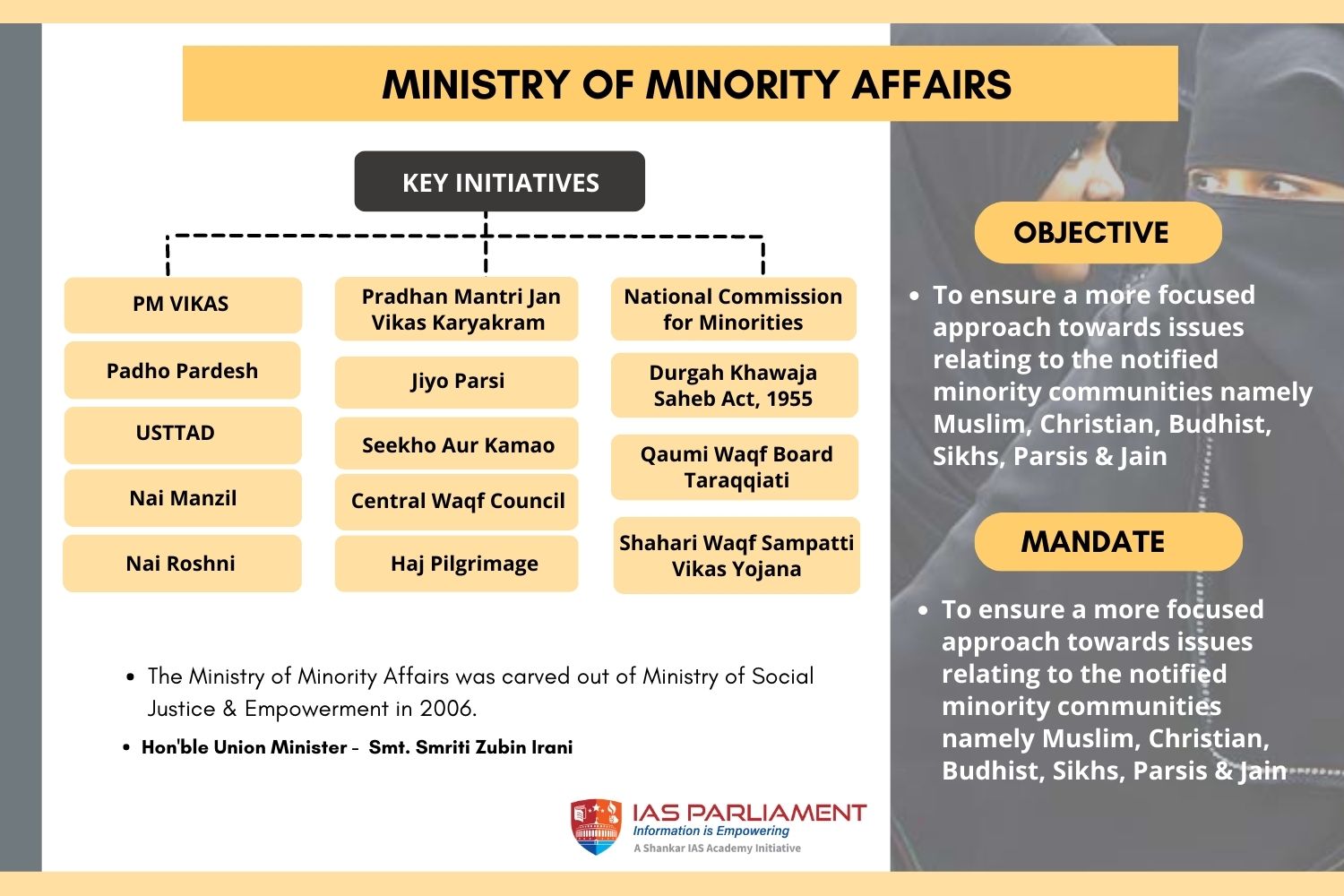7667766266
enquiry@shankarias.in

The term "minority" is not defined in the Indian Constitution. However, the Constitution recognises religious and linguistic minorities.
Key activities undertaken in the scheme
|
ARTICLE |
CLUSTER |
|
Black Pottery |
Manipur |
|
Soft Stone |
Varanasi, Uttar Pradesh |
|
Chikankari |
Lucknow, Uttar Pradesh |
|
Wooden cutlery |
Udayagiri, Andhra Pradesh |
|
Tilla embroidery |
Srinagar, Jammu and Kashmir |
|
Bidriware |
Bidar, Karnataka |
|
Chanapatna toys |
Chanapatna, Karnataka |
Reference